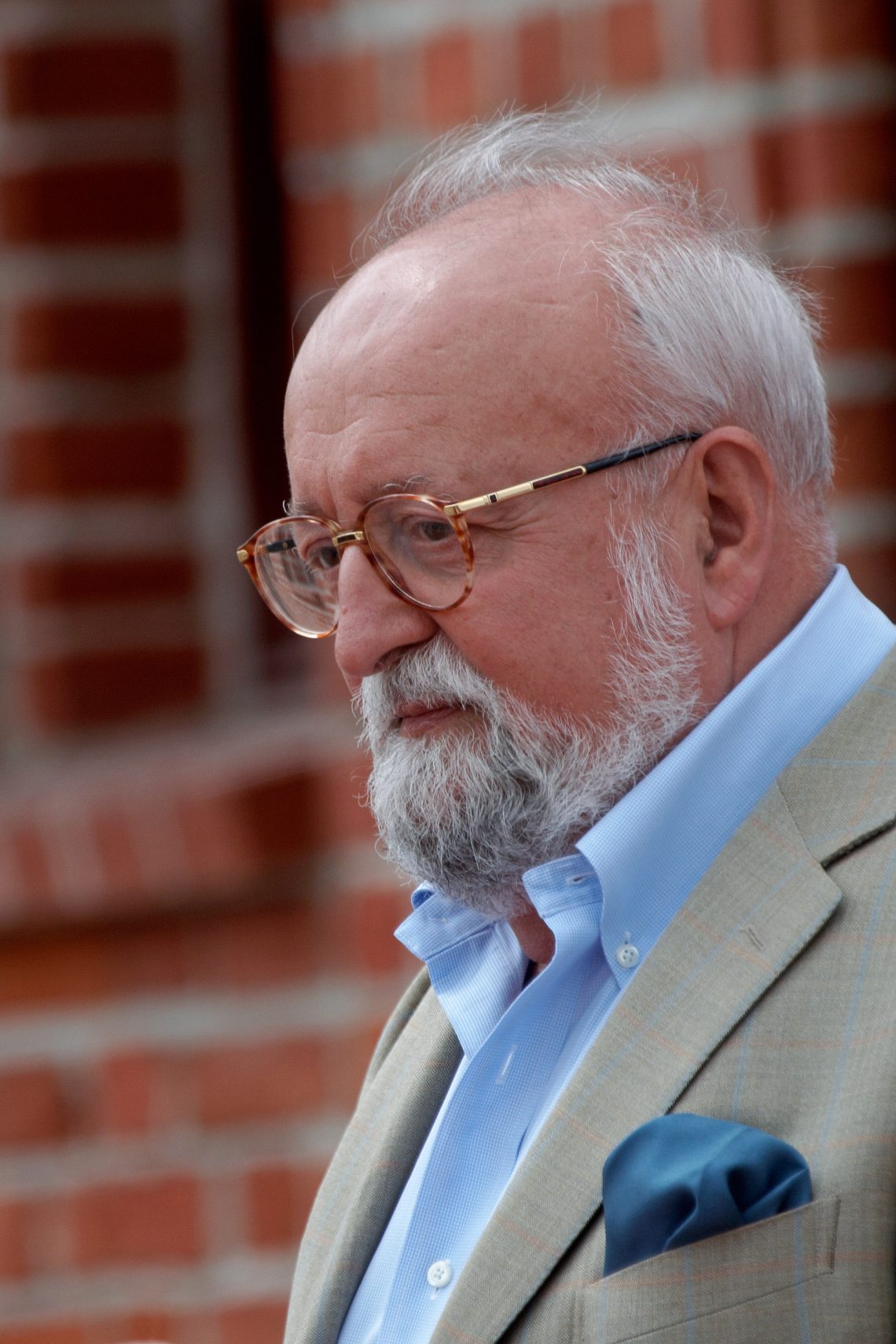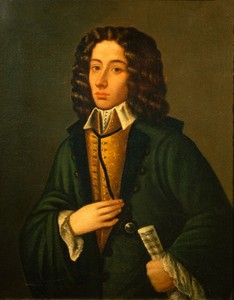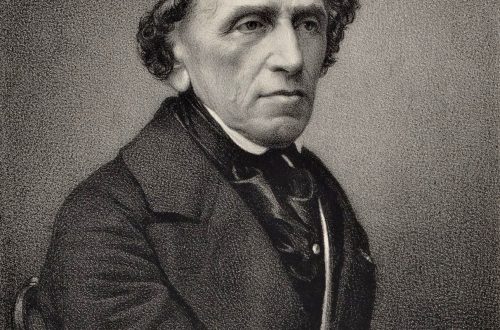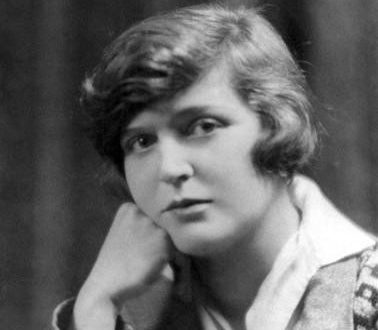
Krzysztof Penderecki |
Krzysztof Penderecki
After all, if lying outside, outside of our world, There is no space boundaries, then the mind tries to find out. What is there where our thought rushes, And where our spirit flies, rising in a free guy. Lucretius. On the nature of things (K. Penderecki. Cosmogony)
Music of the second half of the XNUMXth century. it is difficult to imagine without the work of the Polish composer K. Penderecki. It clearly reflected the contradictions and searches characteristic of post-war music, its throwing between mutually exclusive extremes. The desire for daring innovation in the field of means of expression and the feeling of an organic connection with a cultural tradition dating back centuries, extreme self-restraint in some chamber compositions and a penchant for monumental, almost “cosmic” sounds of vocal and symphonic works. The dynamism of a creative personality forces the artist to test various manners and styles “for strength”, to master all the latest achievements in the technique of composition of the XNUMXth century.
Penderecki was born into a family of a lawyer, where there were no professional musicians, but they often played music. Parents, teaching Krzysztof to play the violin and piano, did not think that he would become a musician. At the age of 15, Penderecki really took a great interest in playing the violin. In small Denbitz, the only musical group was the city brass band. Its leader S. Darlyak played an important role in the development of the future composer. In the gymnasium, Krzysztof organized his own orchestra, in which he was both a violinist and a conductor. In 1951 he finally decided to become a musician and left to study in Krakow. Simultaneously with classes at the music school, Penderetsky attends the university, listening to lectures on classical philology and philosophy by R. Ingarden. He thoroughly studies Latin and Greek, is interested in ancient culture. Classes in theoretical disciplines with F. Skolyshevsky – a brightly gifted personality, pianist and composer, physicist and mathematician – instilled in Penderetsky the ability to think independently. After studying with him, Penderetsky enters the Higher Musical School of Krakow in the class of the composer A. Malyavsky. The young composer is especially strongly influenced by the music of B. Bartok, I. Stravinsky, he studies the style of writing P. Boulez, in 1958 he meets L. Nono, who visits Krakow.
In 1959, Penderecki won a competition organized by the Union of Polish Composers, presenting compositions for orchestra – “Strophes”, “Emanations” and “David’s Psalms”. The international fame of the composer begins with these works: they are performed in France, Italy, Austria. On a scholarship from the Union of Composers, Penderecki goes on a two-month trip to Italy.
Since 1960, the intensive creative activity of the composer begins. This year, he creates one of the most famous works of post-war music, the Hiroshima Victims Memorial Tran, which he donates to the Hiroshima City Museum. Penderecki becomes a regular participant in international contemporary music festivals in Warsaw, Donaueschingen, Zagreb, and meets many musicians and publishers. The works of the composer stun with the novelty of techniques not only for listeners, but also for musicians, who sometimes do not immediately agree to learn them. In addition to instrumental compositions, Penderecki in the 60s. writes music for the theater and cinema, for drama and puppet performances. He works at the Experimental Studio of the Polish Radio, where he creates his electronic compositions, including the play “Ekecheiria” for the opening of the Munich Olympic Games in 1972.
Since 1962, the composer’s works have been heard in the cities of the USA and Japan. Penderecki gives lectures on contemporary music in Darmstadt, Stockholm, Berlin. After the eccentric, extremely avant-garde composition “Fluorescence” for orchestra, typewriter, glass and iron objects, electric bells, saw, the composer turns to compositions for solo instruments with orchestra and works of large form: opera, ballet, oratorio, cantata (oratorio “Dies irae ”, dedicated to the victims of Auschwitz, – 1967; children’s opera “The Strongest”; oratorio “Passion according to Luke” – 1965, a monumental work that put Penderecki among the most performed composers of the XNUMXth century).
In 1966, the composer traveled to the festival of music of Latin American countries, to Venezuela and for the first time visited the USSR, where he later came repeatedly as a conductor, a performer of his own compositions. In 1966-68. the composer teaches a composition class in Essen (FRG), in 1969 – in West Berlin. In 1969, Penderecki’s new opera The Devils of Lüden (1968) was staged in Hamburg and Stuttgart, which in the same year appeared on the stages of 15 cities around the world. In 1970, Penderecki completed one of his most impressive and emotional compositions, Matins. Referring to the texts and chants of the Orthodox service, the author uses the latest composing techniques. The first performance of Matins in Vienna (1971) aroused great enthusiasm among listeners, critics and the entire European musical community. By order of the UN, the composer, who enjoys great prestige all over the world, creates for the annual concerts of the UN the oratorio “Cosmogony”, built on the statements of philosophers of antiquity and modernity about the origin of the universe and the structure of the universe – from Lucretius to Yuri Gagarin. Penderetsky has been much involved in pedagogy: since 1972 he has been rector of the Krakow Higher School of Music, and at the same time teaches a composition class at Yale University (USA). For the 200th anniversary of the United States, the composer writes the opera Paradise Lost based on the poem by J. Milton (premiered in Chicago, 1978). From other major works of the 70s. one can single out the First Symphony, the oratorio works “Magnificat” and “Song of Songs”, as well as the Violin Concerto (1977), dedicated to the first performer I. Stern and written in a neo-romantic manner. In 1980 the composer writes the Second Symphony and Te Deum.
In recent years, Penderetsky has been giving concerts a lot, working with student composers from different countries. Festivals of his music are held in Stuttgart (1979) and Krakow (1980), and Penderecki himself organizes an international chamber music festival for young composers in Lusławice. The vivid contrast and visibility of Penderecki’s music explains his constant interest in musical theatre. The composer’s third opera The Black Mask (1986) based on the play by G. Hauptmann combines nervous expressiveness with elements of oratorio, psychological accuracy and depth of timeless problems. “I wrote Black Mask as if it were my last work,” Penderecki said in an interview. – “For myself, I decided to end the period of enthusiasm for late romanticism.”
The composer is now at the zenith of worldwide fame, being one of the most respected musical figures. His music is heard on different continents, performed by the most famous artists, orchestras, theaters, capturing an audience of many thousands.
V. Ilyeva





